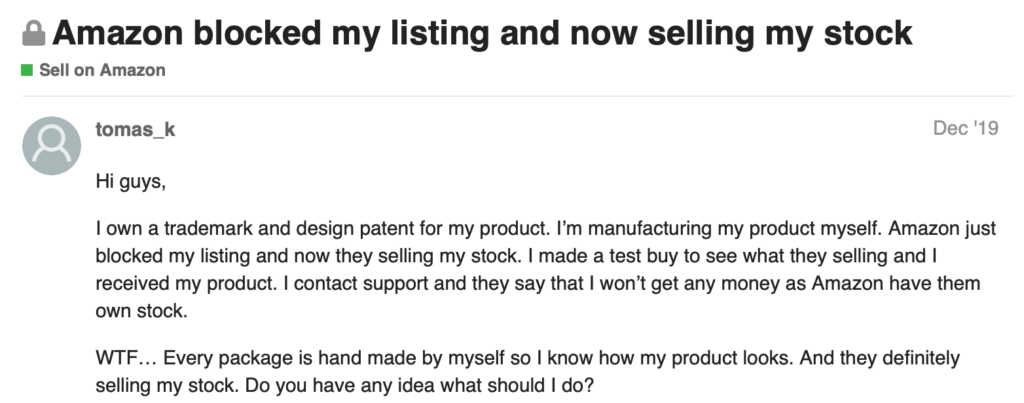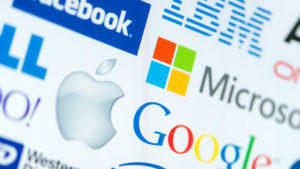My two prior entries detailed the issues of privacy and were primarily focused on a one key actor – Facebook. That is why I decided to disprove the common view of another “marvelous” tech giant – Amazon.
While the ongoing pandemic is a true hit for many businesses many of large, multinational companies are actually only getting bigger. One of them is Amazon. Its sales in the last quarter rose as much as 51% in comparison to the previous year. Also, it has surpassed Walmart as the biggest retailer by market capitalization in the United States. While other businesses are closing Amazon is only increasing its power and commercial reach. Do not get me wrong, there is nothing bad in “bigness” and with developing. The argument that Amazon creates terrific opportunities both in terms of creating the jobs and facilitating people setting up their own business is also perfectly logical and rational. However, too often have we fallen for the alleged benefits and too little have we considered the risks that stem from company’s enormous market power.

While in Poland Amazon services do not yet have a strong market presence, in the United States and the UK it is a go-to service when it comes to essentially buying anything. You want to buy diapers? You order them on Amazon. You need a new dog toy? You go to Amazon. You are out of cheese? You only need to log in to Amazon Fresh and it can be delivered to you at once. However, with all those possibilities and freedom of choice for customers there has to be a catch. We rarely realize that the ones paying the price for Amazon’s incredible efficiency and speedy deliveries are its employees. Probably many of you are now thinking that it is their job and there is nothing they can complain about. They can always quit or file a complaint, right? Believe me, they do that. In November, when the holiday season started, as much as 600 of them signed and delivered a petition to improve their working conditions. It was only in one warehouse in New York and there are many more.
Nevertheless, let me show you how working for Amazon looks like. If you worked as a sorter you would have to scan 1800 Amazon packages in an hour. It is 30 packages per minute. Also, you would get 15-minute breaks. However, you would need that 15 minutes to walk to and from the room where you can spend your break. Did I mention that you can get fired every time you miss your hourly rate?
There is no doubt that working for Amazon, in pretty much any non-senior capacity, is no dream job. Since Amazon is a marketplace, beyond the employees – there are also millions of sellers who use the platforms and as such, drive Amazon’s operations. From this, things can get ugly as well. I will present it in a form of a screenshot from the Amazon forum:

That is not a joke. They did that and that poor seller was not the only one. What is more, there are many other factors which can restrain sellers from making profits or for that matter, selling their products altogether. First of all, one can get banned unexpectedly and usually, there is no appeal mechanisms where we could oppose the decision. One of the banning reasons may be that a product that was sent was damaged or did not match its description. However, it is a classic example of a situation where Amazon (inherent in its policy) have always favored buyers, who tend to abuse it. The thing is if someone wants to return a product and does not want to pay for return shipping, he can always mark a product as damaged. There is nothing as a penalty for buyers and sellers are to ones who have everything to lose:
“One time, a buyer purchased a bunch of our napkins, used them for a party and soiled them, and then returned them for a full refund stating that the item was not as expected. We had to eat the cost.” – a seller[1].
Other negative aspects are that Amazon can force you to sell your products at a certain price. Also, it can force you to sell items on vendor central. It means that you must sell your products at a wholesale price to Amazon directly. The result is you have no control over them and little profit, which can destroy your product sales and listings. Amazon can squeeze all small businesses and they can do nothing about it.
The third aspect that I would like to stress is obviously data collection and privacy. Amazon’s incredibly rapid growth is a fact. However, increased risks are associated with that expansion. Corruption and potential data leaks are one of them. A company of such size and power should be held accountable and directly responsible for such situations. The problem with Amazon was workers who inappropriately accessed internet data and misused it. They were selling confidential information about sellers on Amazon. Later, that data allowed other sellers to gain advantages on the website. Also, employees of Amazon were selling Amazon Vendor Central Accounts which allowed buyers to enter other sellers’ listings and illegally change them.
However, misused data collection does not concern the black market only. The company itself has recently been accused by FTC of breaching US federal antitrust rules. Among other things, it allegedly used internal data about its sellers to compete with them. The gathered data allowed Amazon to detect best-selling products and adjust their own products following those criteria. As a result, Amazon basically avoids any risks of fair competition. While the investigation is still ongoing and the case is pending, serious accusations have already been made and charges are still yet to be presented.
Undeniably Amazon is a huge platform which is only expanding day by day. To be clear, I am not denying that Amazon is a great platform. In many respects, it really is. However, the company should remember that with great power comes great responsibility and that because of its size and influence, it will be expected to constantly improve. Maybe if such improvement was in place, Mr. Bezos would still be the World’s richest person.
Sources:
[1] Chou S, “The Dangers Of Selling On Amazon And Horror Stories From Real Amazon Sellers” (MyWifeQuitHerJob.com)
2. “Amazon: It All Ads Up” (Subscribe to read | Financial TimesOctober 30, 2020)
3. Emont J, McMillan R and Stevens L, “Amazon, Amid Crackdown on Seller Scams, Fires Employees Over Data Leak” (The Wall Street JournalDecember 10, 2018)
4. Risicaris G, “Forums” (Amazon2006)
5. Weise K, “Prime Power: How Amazon Squeezes the Businesses Behind Its Store” (The New York TimesDecember 19, 2019)
6. Wisniewska A and Bradshaw T, “How 2020 Changed the Way We Use Technology” (Financial TimesJanuary 2, 2021)


